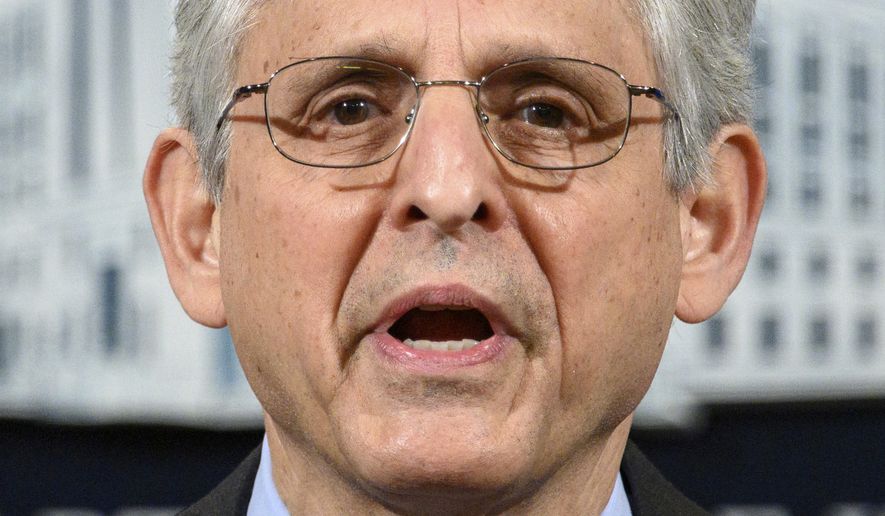Attorney General Merrick Garland will testify before Congress for the first time Tuesday when he asks lawmakers to fund the Justice Department’s aggressive scrutiny of police departments.
The nation’s top cop will make his pitch to the House Appropriations Committee for $1.8 billion in additional funds, most of which will be allocated to increasing police oversight. Of that amount, $33 million, or nearly 20%, of the increase would go to efforts to change policing in America.
Another $300 million is aimed at community policing and diversifying police forces to mirror the communities they serve. Included in the pot would be money for racial sensitivity, implicit bias, and hate crime training.
The White House said the budget is part of “bold action” to ensure the criminal justice “serves and protects all Americans.”
Former police officers see it differently. They say boosting the budget of the department’s Civil Rights Division is evidence they are going to ramp up investigations into the country’s police departments.
The Civil Rights Division conducts the probes, known as “pattern or practice” investigations, in search of police violating minorities’ civil rights.
“With that kind of a bump, it sounds like they are going to get very aggressive,” said Randy Petersen, a former officer and senior researcher for the Texas Public Policy Foundation. “They are capitalizing on the national anti-police sentiment on the left and couching it with a comfy title like community relations.”
Since being sworn in last month, Mr. Garland has zealously pushed for so-called “pattern or practice” investigations. He has already opened up probes into the police departments of Minneapolis and Louisville, Kentucky.
At a meeting with leaders of police groups last month, Mr. Garland said more investigations would be launched.
The investigations were a staple of the Obama-era Justice Department but abandoned by former President Trump.
Former Attorney General Jeff Sessions in 2018 issued an order curtailing the Justice Department’s ability to investigate the local police departments, saying the probes hurt morale.
Mr. Petersen said the conclusions of these investigations are already predetermined.
“Of course they are going to find something,” he said. “These departments have millions of contacts per year. It is not going to be hard to find something.”
Mr. Garland said the probes are necessary to improve the relationship between the police and community residents.
“Those investigations, and the recommendations and actions that ensue, do not only protect individuals’ civil rights. They also assist police departments in developing measures to increase transparency and accountability,” he said last week. “Those qualities are necessary to building trust between law enforcement and the communities they serve. And community trust is essential to making policing more effective and less dangerous for officers on the street.”
• Jeff Mordock can be reached at jmordock@washingtontimes.com.




Please read our comment policy before commenting.